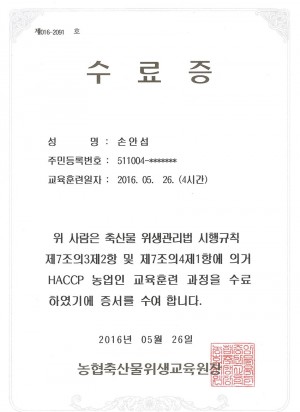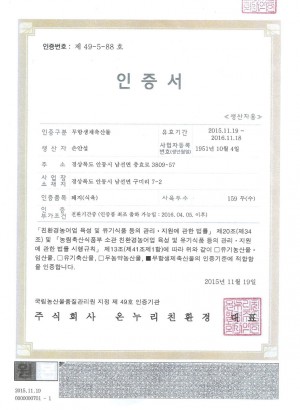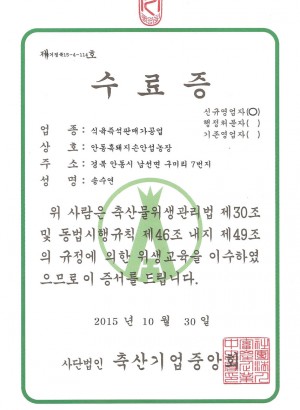[앞다리살]An In-Depth Look Into The Future What Will The Tetrahydrocannabinol In…
43
2022.12.14 11:44
짧은주소
본문
What Is THC?
Typically, the term "THC" refers to the Delta-9-THC Isomer. This is one of the 113 cannabis cannabinoids present in cannabis plants. However, it is also possible to find a number of other THC isomers, such as tetrahydrocannabinol and trans-9-tetrahydrocannabinol. These are the different compounds that are found in cannabis plants and are responsible for the psychoactive effects of the substance.
Delta-9-THC
Among the cannabinoid compounds found in cannabis plants, Delta-9 Tetrahydrocannabinol, or D9 THC, is the most prevalent. The delta-9 form of THC has the highest amount of psychoactive properties, including an euphoria-like feeling and a recreational buzz. It's also a popular as a pain alleviation. Delta-9 THC can have side effects, so it is important to think about these effects before you use the product.
Delta-9 THC is used to treat a range of medical conditionslike cancer, multiple sclerosis and anxiety. It can also be used to improve appetite in HIV/AIDS patients and to treat chemotherapy-induced nausea. It also acts as a natural sleep aid.
Although it isn't legal Thc (www.dankdollz.Com) under federal law in the United States of America, delta-9 THC can be legally purchased in certain states. It is not strictly controlled by the FDA therefore, it is a bit of a grey area when pertains to legality. In the meantime, it is recommended to purchase Delta-9 THC from a reputable retailer.
If you're in search of the most effective Delta-9 THC items it is a good idea to buy from a legal cannabis online store. Products that have been lab tested for purity and potency should be picked. It's also a good idea to purchase delta-9 THC from a reputable, cannabis-friendly doctor.
As stated, the effects of Delta 9 THC are different than the effects of Delta 8. Although both forms of THC can have similar effects however, the delta-9 THC product is more potent.
For instance, when you smoke delta-9, you might feel dizzy, sweaty or have a heart that is racing. You could also experience dehydration.
The effects of delta-9-THC vary depending on your body's weight and the length of time you've been taking it for. To avoid overdose, it is best not to consume too much.
THCB
THCB is among the most well-known cannabinoids. It is a natural compound with similar properties as THC. It is a substance that is a part of the endocannabinoid system of the brain and is believed to be an analgesic and pain relieving agent. It regulates sleep patterns.
The structure of the THCB molecules is very like THC. It has four carbon atoms. It is however more potent at CB1 receptor, which is the brain's primary cannabinoid. In addition, THCB has a butyl group that is unlikely to cause any safety concerns.
THCB is relatively new to the market. It isn't extensively studied. While some scientists believe that THCB may have a variety of psychoactive effects that are greater than THC, it is not evident if they're more potent.
THCB is also well-known for its anti-inflammatory properties. Recent research suggests that THCB could be helpful in reducing pain, and also in improving sleep.
THCB can be consumed via vape, tinctures and edibles. You can also get it in distillate form. Although it has been reported that THCB is slightly more potent than THC at the CB1 receptor however, the differences are not major.
THCB has been compared to delta 9 THC which is the "toned-down" version of THC that is believed to have less psychotropic effects. It is also believed to be more efficient in decreasing inflammation.
THCB is not suitable for all people, and it is advised to consult a doctor or healthcare professional prior to taking it. THCB has been reported to cause some negative side effects, including dry mouth, drowsiness, and red eyes. It is recommended to begin slow and Legal THC gradually increase the dose as time passes.
THCA
THCA is the precursor to THC and is an extract of cannabis. THCA, unlike THC is not psychoactive. It has been shown to have a variety of beneficial properties.
Studies have shown that THCA may possess neuroprotective as well as anti-inflammatory properties. It may also be used to treat arthritis, fibromyalgia and other conditions.
THCA has been found to have a positive impact on nausea, appetite as well as pain symptoms. It can also aid in the prevention of neurodegenerative diseases. It is not clear what role THCA plays in the endocannabinoid and endocannabinoid.
THCA can be found in a wide variety of cannabis. THCA is the most common cannabinoid in cannabis.
There are a myriad of ways to use THCA. For example, THCA can be extracted and then vaporized or dabbed. It can be added to CBD and THC to enhance its bioavailability.
Federal law does not define THCA as a controlled substance. However, sales of THCA could be investigated under the Federal Analogue Act.
There is not much research available on the effects of THCA's use on humans. It is recommended to test it on humans to establish its safety.
THCA is known to show certain therapeutic properties, however more research is required to determine if it's a beneficial drug. There have been reports of THCA helping treat symptoms of lupus, fibromyalgia, and other ailments. THCA has been proven to be safe and effective in treating a variety of illnesses.
Although THCA is not a popular drug in the United States of America, there is evidence suggesting that it is safe to take. Before adding THCA to a diet, it is recommended to consult with your physician.
Effects of high potency THC strains
Regardless of whether you're buying marijuana for recreational or medicinal reasons, you need to be aware of the possible negative effects of high-potency THC strains. There's increasing evidence to suggest that THC can cause a variety of health risks.
Some studies suggest that high-potency THC strains may increase the likelihood of developing psychosis. However, more research is needed to determine the extent of the impact these strains affect your health.
Certain research has suggested that regular consumption of these products could lead to increased anxiety and depression. Young people could be more at chance of developing mental illness if they are exposed to products that have high potency.
Suicidal ideation, attempts and even suicide are more likely. Regular use of cannabis may also have a negative impact on your heart and lung health. The American Lung Association has called for more research on the effects of cannabis on the lungs.
THC can also affect your mood and memory, appetite, and other aspects of your life. It can also cause irritation to your eyes. Some eye drops may cause dryness after use.
There is some evidence that higher doses of THC can trigger a higher level of memory impairment. THC can connect to the brain's cannabinoid receptors. This may reduce the amount of CBD in your system.
Consuming cannabis with a high potency daily could increase the risk of having psychotic episodes. It is possible that you'll be experiencing some of the common side effects of THC, such as paranoia and headaches, but these symptoms are unlikely to last long.
Cannabinoid Hyperemesis Syndrome, also known as CHS is another possible side result. This condition can cause nausea, dehydration, abdominal cramps, and vomiting. It is important to increase your dosage slowly in order to avoid this condition.
THC-based medicines may not be as effective as natural THC or cannabis
Medicinal Cannabis, also known as marijuana, is a chemical derived from the cannabis plants. It is a medicine that helps to ease symptoms that are associated with cancer. You can utilize it in many ways. However an expert doctor will likely prescribe cannabinoid-based medications.
Cannabinoids is a family of 21 carbon compounds. They can be found in cannabis plants. FDA approved them to treat side effects of cancer treatments. They also are believed to have curative properties.
Cannabinoids can be produced in the body and stored as a fat in the tissues of the adipose. They interact with the hepatic Cytochrome P450 enzyme system. They are used to treat nausea and vomiting that are caused by chemotherapy. They are also believed to possess analgesic properties. It isn't clear if they are safe or effective.
There are a variety of pharmacokinetic studies that have been conducted. They were designed to assess the effects of different doses of cannabinoid on various cancer-related side effects. Some studies have revealed no significant weight gain. Other studies have shown no increase in risk of certain cancers.
Two studies examined the effects of oral Delta-9-THC for pain related to cancer. The results of these studies showed analgesic effects comparable to codeine. The dosages used were greater than those that were used in the control group. The analgesic effects were evident for 7 hours. In a subsequent study, patients were given dronabinol and megestrol acetate. The combination was compared against megestrol acetate alone.
There aren't many clinical trials that have randomized patients with cannabinoid-based medicines to test their appetite. While the PDQ cancer information summary provides a summary of the literature it doesn't contain any formal recommendations. It is updated regularly by the PDQ Integrative Alternative and Complementary Therapies Editorial Board which is separate from the National Cancer Institute.
Typically, the term "THC" refers to the Delta-9-THC Isomer. This is one of the 113 cannabis cannabinoids present in cannabis plants. However, it is also possible to find a number of other THC isomers, such as tetrahydrocannabinol and trans-9-tetrahydrocannabinol. These are the different compounds that are found in cannabis plants and are responsible for the psychoactive effects of the substance.
Delta-9-THC
Among the cannabinoid compounds found in cannabis plants, Delta-9 Tetrahydrocannabinol, or D9 THC, is the most prevalent. The delta-9 form of THC has the highest amount of psychoactive properties, including an euphoria-like feeling and a recreational buzz. It's also a popular as a pain alleviation. Delta-9 THC can have side effects, so it is important to think about these effects before you use the product.
Delta-9 THC is used to treat a range of medical conditionslike cancer, multiple sclerosis and anxiety. It can also be used to improve appetite in HIV/AIDS patients and to treat chemotherapy-induced nausea. It also acts as a natural sleep aid.
Although it isn't legal Thc (www.dankdollz.Com) under federal law in the United States of America, delta-9 THC can be legally purchased in certain states. It is not strictly controlled by the FDA therefore, it is a bit of a grey area when pertains to legality. In the meantime, it is recommended to purchase Delta-9 THC from a reputable retailer.
If you're in search of the most effective Delta-9 THC items it is a good idea to buy from a legal cannabis online store. Products that have been lab tested for purity and potency should be picked. It's also a good idea to purchase delta-9 THC from a reputable, cannabis-friendly doctor.
As stated, the effects of Delta 9 THC are different than the effects of Delta 8. Although both forms of THC can have similar effects however, the delta-9 THC product is more potent.
For instance, when you smoke delta-9, you might feel dizzy, sweaty or have a heart that is racing. You could also experience dehydration.
The effects of delta-9-THC vary depending on your body's weight and the length of time you've been taking it for. To avoid overdose, it is best not to consume too much.
THCB
THCB is among the most well-known cannabinoids. It is a natural compound with similar properties as THC. It is a substance that is a part of the endocannabinoid system of the brain and is believed to be an analgesic and pain relieving agent. It regulates sleep patterns.
The structure of the THCB molecules is very like THC. It has four carbon atoms. It is however more potent at CB1 receptor, which is the brain's primary cannabinoid. In addition, THCB has a butyl group that is unlikely to cause any safety concerns.
THCB is relatively new to the market. It isn't extensively studied. While some scientists believe that THCB may have a variety of psychoactive effects that are greater than THC, it is not evident if they're more potent.
THCB is also well-known for its anti-inflammatory properties. Recent research suggests that THCB could be helpful in reducing pain, and also in improving sleep.
THCB can be consumed via vape, tinctures and edibles. You can also get it in distillate form. Although it has been reported that THCB is slightly more potent than THC at the CB1 receptor however, the differences are not major.
THCB has been compared to delta 9 THC which is the "toned-down" version of THC that is believed to have less psychotropic effects. It is also believed to be more efficient in decreasing inflammation.
THCB is not suitable for all people, and it is advised to consult a doctor or healthcare professional prior to taking it. THCB has been reported to cause some negative side effects, including dry mouth, drowsiness, and red eyes. It is recommended to begin slow and Legal THC gradually increase the dose as time passes.
THCA
THCA is the precursor to THC and is an extract of cannabis. THCA, unlike THC is not psychoactive. It has been shown to have a variety of beneficial properties.
Studies have shown that THCA may possess neuroprotective as well as anti-inflammatory properties. It may also be used to treat arthritis, fibromyalgia and other conditions.
THCA has been found to have a positive impact on nausea, appetite as well as pain symptoms. It can also aid in the prevention of neurodegenerative diseases. It is not clear what role THCA plays in the endocannabinoid and endocannabinoid.
THCA can be found in a wide variety of cannabis. THCA is the most common cannabinoid in cannabis.
There are a myriad of ways to use THCA. For example, THCA can be extracted and then vaporized or dabbed. It can be added to CBD and THC to enhance its bioavailability.
Federal law does not define THCA as a controlled substance. However, sales of THCA could be investigated under the Federal Analogue Act.
There is not much research available on the effects of THCA's use on humans. It is recommended to test it on humans to establish its safety.
THCA is known to show certain therapeutic properties, however more research is required to determine if it's a beneficial drug. There have been reports of THCA helping treat symptoms of lupus, fibromyalgia, and other ailments. THCA has been proven to be safe and effective in treating a variety of illnesses.
Although THCA is not a popular drug in the United States of America, there is evidence suggesting that it is safe to take. Before adding THCA to a diet, it is recommended to consult with your physician.
Effects of high potency THC strains
Regardless of whether you're buying marijuana for recreational or medicinal reasons, you need to be aware of the possible negative effects of high-potency THC strains. There's increasing evidence to suggest that THC can cause a variety of health risks.
Some studies suggest that high-potency THC strains may increase the likelihood of developing psychosis. However, more research is needed to determine the extent of the impact these strains affect your health.
Certain research has suggested that regular consumption of these products could lead to increased anxiety and depression. Young people could be more at chance of developing mental illness if they are exposed to products that have high potency.
Suicidal ideation, attempts and even suicide are more likely. Regular use of cannabis may also have a negative impact on your heart and lung health. The American Lung Association has called for more research on the effects of cannabis on the lungs.
THC can also affect your mood and memory, appetite, and other aspects of your life. It can also cause irritation to your eyes. Some eye drops may cause dryness after use.
There is some evidence that higher doses of THC can trigger a higher level of memory impairment. THC can connect to the brain's cannabinoid receptors. This may reduce the amount of CBD in your system.
Consuming cannabis with a high potency daily could increase the risk of having psychotic episodes. It is possible that you'll be experiencing some of the common side effects of THC, such as paranoia and headaches, but these symptoms are unlikely to last long.
Cannabinoid Hyperemesis Syndrome, also known as CHS is another possible side result. This condition can cause nausea, dehydration, abdominal cramps, and vomiting. It is important to increase your dosage slowly in order to avoid this condition.
THC-based medicines may not be as effective as natural THC or cannabis
Medicinal Cannabis, also known as marijuana, is a chemical derived from the cannabis plants. It is a medicine that helps to ease symptoms that are associated with cancer. You can utilize it in many ways. However an expert doctor will likely prescribe cannabinoid-based medications.
Cannabinoids is a family of 21 carbon compounds. They can be found in cannabis plants. FDA approved them to treat side effects of cancer treatments. They also are believed to have curative properties.
Cannabinoids can be produced in the body and stored as a fat in the tissues of the adipose. They interact with the hepatic Cytochrome P450 enzyme system. They are used to treat nausea and vomiting that are caused by chemotherapy. They are also believed to possess analgesic properties. It isn't clear if they are safe or effective.
There are a variety of pharmacokinetic studies that have been conducted. They were designed to assess the effects of different doses of cannabinoid on various cancer-related side effects. Some studies have revealed no significant weight gain. Other studies have shown no increase in risk of certain cancers.
Two studies examined the effects of oral Delta-9-THC for pain related to cancer. The results of these studies showed analgesic effects comparable to codeine. The dosages used were greater than those that were used in the control group. The analgesic effects were evident for 7 hours. In a subsequent study, patients were given dronabinol and megestrol acetate. The combination was compared against megestrol acetate alone.
There aren't many clinical trials that have randomized patients with cannabinoid-based medicines to test their appetite. While the PDQ cancer information summary provides a summary of the literature it doesn't contain any formal recommendations. It is updated regularly by the PDQ Integrative Alternative and Complementary Therapies Editorial Board which is separate from the National Cancer Institute.















댓글목록
등록된 댓글이 없습니다.